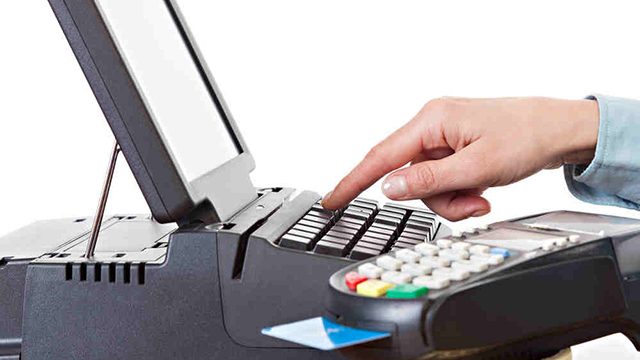SUMMARY
This is AI generated summarization, which may have errors. For context, always refer to the full article.

MANILA, Philippines – The Bangko Sentral ng Pilipinas (BSP) is looking at raising the share of electronic payments in the country’s total financial transactions.
On Thursday, December 10, BSP Governor Amando Tetangco Jr said the share of electronic payments is currently only 1%. Now, the BSP wants to increase that figure to 20% over the next 5 years with the rollout of the National Retail Payment System (NRPS).
The NRPS is positioned to facilitate the country’s transition from a cash-heavy to a cash-lite economy, eventually bringing material benefits for the government and businesses.
Regular consumers can also benefit from the NRPS in terms of speed and efficiency, reduced costs, improved transparency, enhanced security, and expanded access to financial services. (READ: Support electronic retail payment, BSP urges)
Rare opportunity
Tetangco said the NRPS is a real, positive game changer for the economy and for the people.
According to him, a switch from check to direct credit would save the country’s banking sector $1.52 per payment.
If all the local checks cleared in 2013 were e-payments instead, the industry could have saved $272 million or about 8.5% of the net income after tax of all banks operating in the Philippines, Tetangco noted.
Data from the Better Than Cash Alliance (BTCA) showed only 1% of about 2.5 billion payment transactions worth $74 billion made by Filipinos per month are electronic despite the high mobile penetration rate in the country, Tetangco also said.
The BTCA added that e-commerce makes up less than 1% of total commerce in the Philippines, compared to 4% to 5% in Thailand, Vietnam, and Indonesia, as well as the 10% to 15% in developed countries.
Payment System Management Body
For his part, BSP Deputy Governor Nestor Espenilla Jr said the next step after the NRPS’ launch is the establishment of the self-governing Payment System Management Body (PSMB) within the first semester of 2016.
Espenilla said the BSP, in consultation with the industry and other stakeholders, will provide principles to guide the clearing participants in setting and implementing policies and standards to govern retail payments.
The NRPS would be fully operational by the middle of 2017.
The Bankers Association of the Philippines, Chamber of Thrift Banks, and Rural Banks Association of the Philippines, among others, have committed support for the system.
Countries that have adopted a retail payment governance similar to the NRPS include the United Kingdom, European Union, Canada, Japan, Australia, South Korea, Singapore, South Africa, Hong Kong, India, Taiwan, Malaysia, Thailand, and Sri Lanka. – Rappler.com
Electronic retail payment system image from Shutterstock
Add a comment
How does this make you feel?





There are no comments yet. Add your comment to start the conversation.